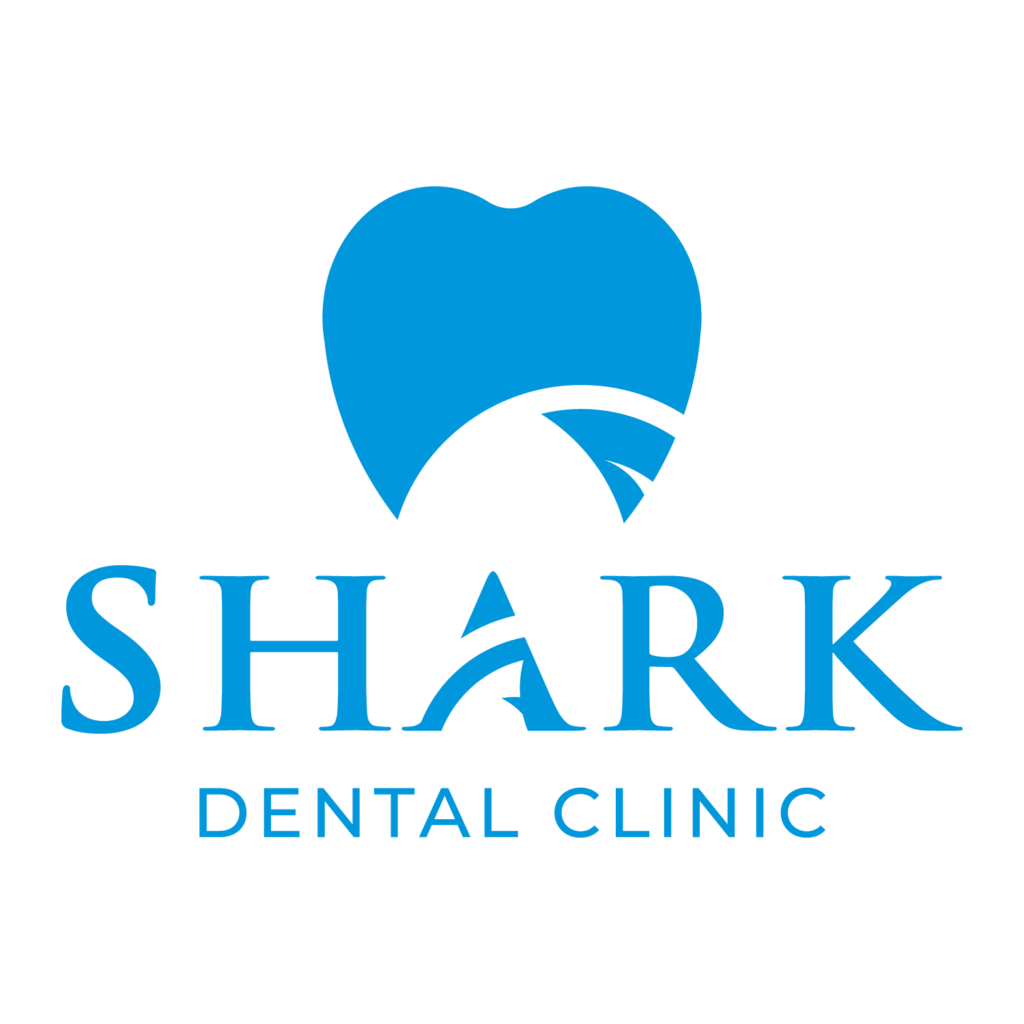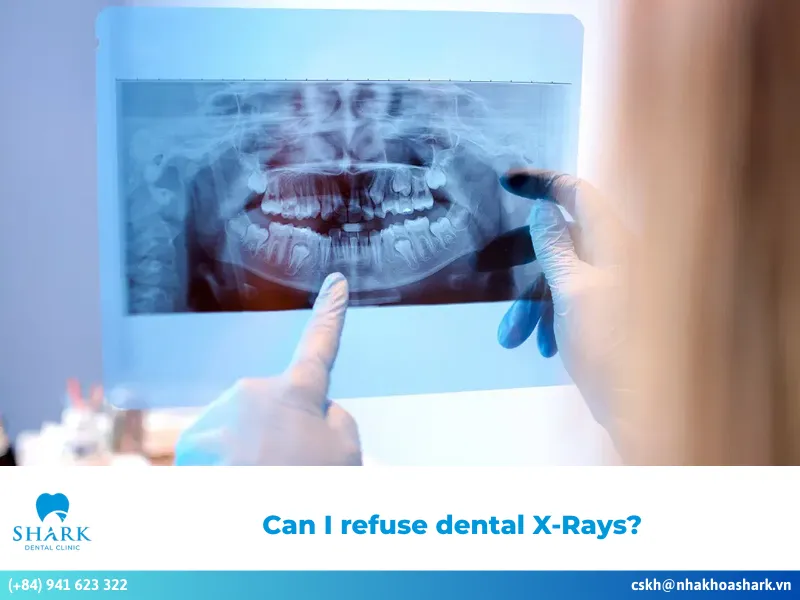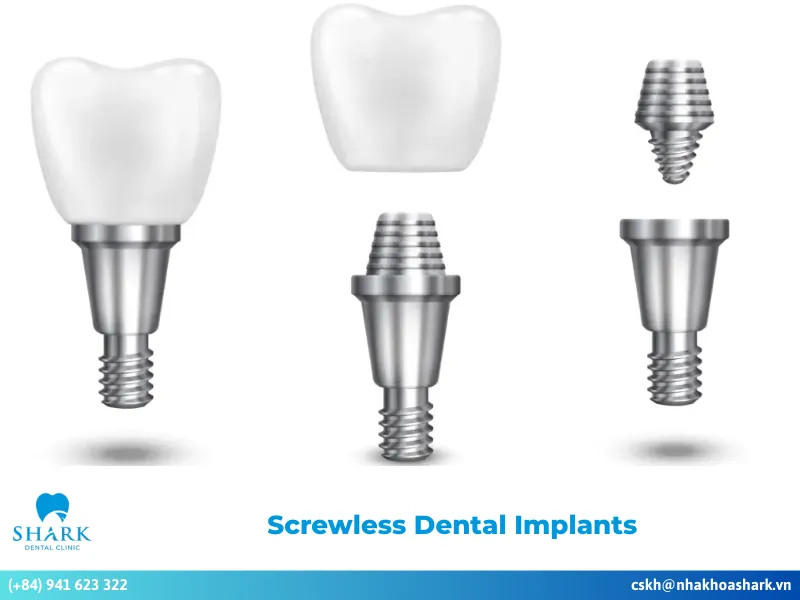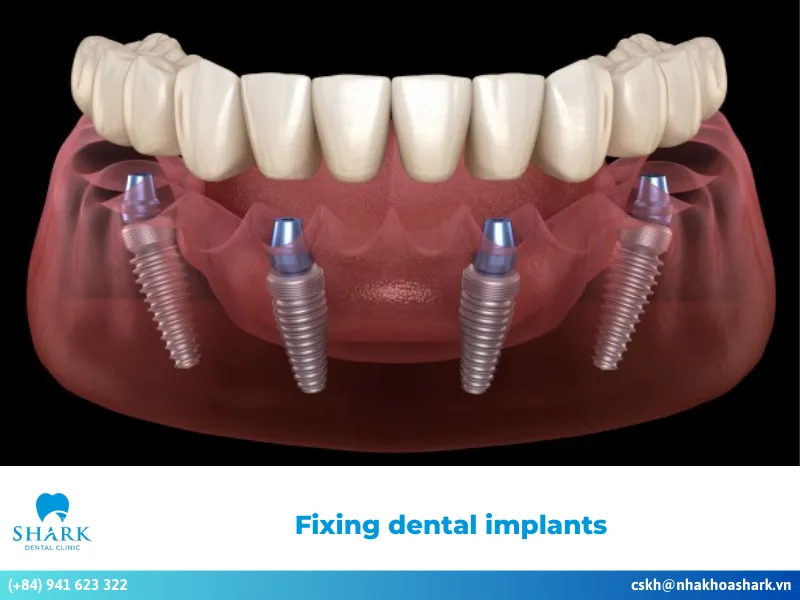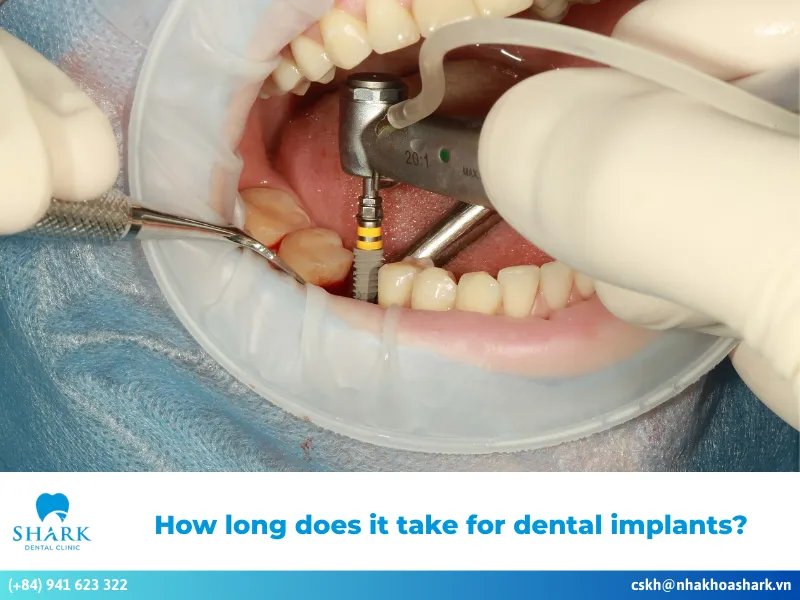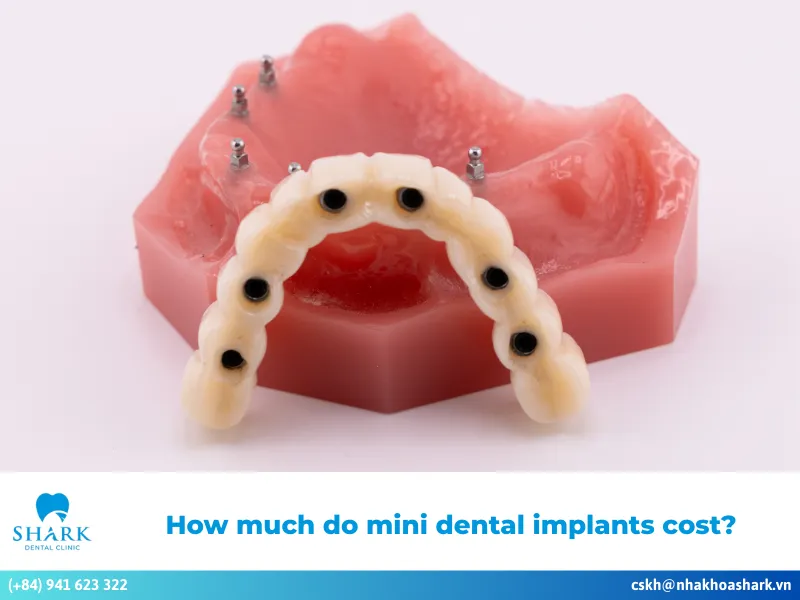Dental implants are a modern and effective solution for tooth restoration, but maintaining their durability requires a proper diet and good oral hygiene. So, how long after dental implants can i eat normally, and what should you eat during recovery? This article provides answers and useful tips for post-implant care!
How long after dental implants can i eat normally?
You can generally eat normally about 3 to 6 months after dental implant placement. The dental implant procedure involves inserting a titanium dental implant post into the jawbone, which is then attached to a dental crown to restore the function and appearance of a missing or damaged tooth. A healthy diet after the implant procedure helps the implant post stabilize within the bone, ensuring optimal chewing and speaking functions.
Fortunately, the dental implant procedure does not cause significant soft tissue trauma, so the post-operative diet is not overly restrictive. Specifically:
- Within the first hour after implant placement: During this time, your mouth is sensitive, and the surgical site has not yet healed, which makes it prone to bleeding. Therefore, you should avoid eating or drinking any food during the first hour to prevent irritation or injury to the gums.
- Within the next 3–5 hours: You may begin consuming soft, liquid-based foods such as soups or broths. However, avoid hot or cold foods during this stage, as extreme temperatures can irritate the gums and delay healing.
- After 24-48 hours: At this point, you should feel more comfortable eating. The surgical area will be less painful or sensitive, making it easier to eat and drink.
- After 3–6 months: This is when the implant post fully integrates with the jawbone, and you can resume eating normally. However, dentists still recommend prioritizing soft foods and avoiding hard, dry, or carbonated items to maintain the durability of the implant.
In summary, after getting dental implants, you can gradually return to a normal diet. However, it’s essential to follow a balanced and nutritious meal plan that emphasizes soft, easy-to-chew foods. Always adhere to your dentist’s post-operative dietary advice to ensure a healthy, strong, and long-lasting set of teeth.
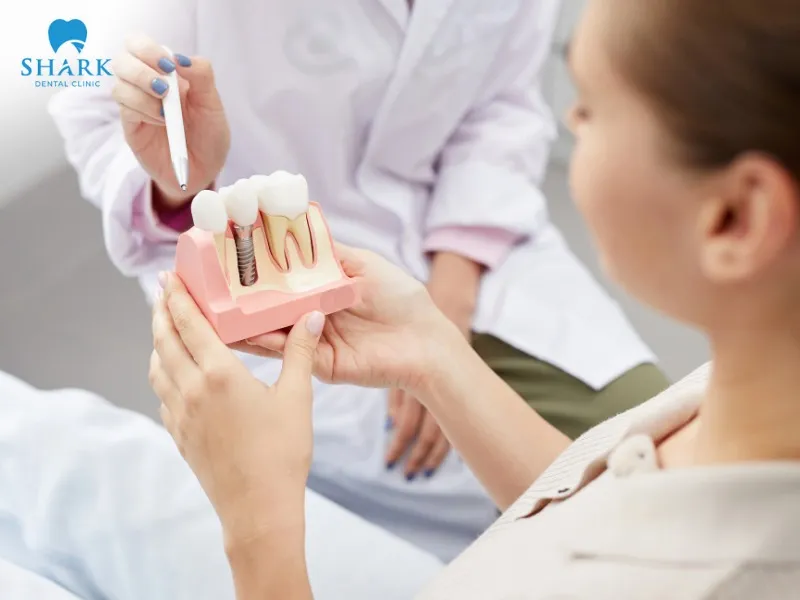
>>> See more: How long do teeth implants last?
What can i eat within the initial 24-48 hours?
During the first 24-48 hours after your dental implant procedure, you should choose the following types of food to support healing and minimize discomfort:
- Soft and liquid-based foods: Dentists recommend consuming easy-to-chew foods such as porridge, soup, broth, mashed potatoes, or pureed vegetables. These foods minimize pressure on the implant site and help the implant post integrate smoothly with the jawbone.
- Stay hydrated: Drinking plenty of fluids is crucial during the first two days after surgery. Water, fruit juices, or clear soups can supply essential nutrients, keep the mouth clean, and promote faster healing.
- Nutrient-rich foods: Include foods high in fiber and nutrients, such as red bell peppers, papaya, oranges, kiwi, sweet potatoes, and pumpkin. Foods like eggs, fish, and milk are also beneficial as they provide calcium and protein that help strengthen bone and tooth structure.
- Foods rich in vitamin C: Fruits and vegetables high in Vitamin C are highly recommended for implant patients. They help strengthen the bone structure surrounding the implant while boosting the immune system and resistance to infection.
In addition to these recommended foods, patients should avoid hard or chewy items, as they can exert unnecessary pressure on the implant and affect its stability. Additionally, limit sugary, spicy, or excessively hot foods to prevent swelling, prolonged pain, and potential infection.
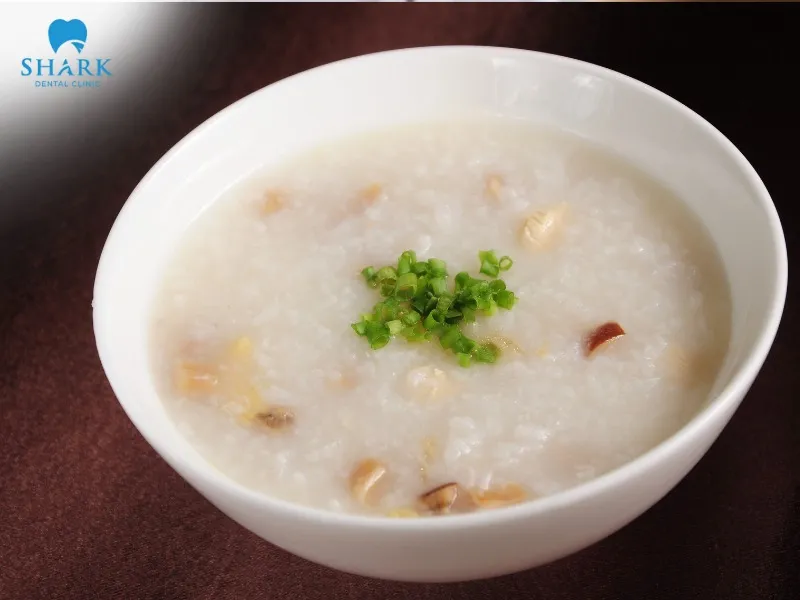
>>> See more: 50 soft foods to eat after dental implant surgery
The weeks following surgery
Your post-implant diet should be scientifically balanced yet nutritionally adequate to strengthen your immune system and help the implant post integrate with the jawbone quickly and stably.
After 2 months of implant placement
Two months after the implant post is inserted, it has begun to gradually integrate with the jawbone, but its stability is not yet optimal. During this time, prioritize soft, easy-to-chew, and easy-to-swallow foods that are well-cooked or mashed. Foods high in calcium, such as eggs, milk, cheese, and seafood, are also recommended.
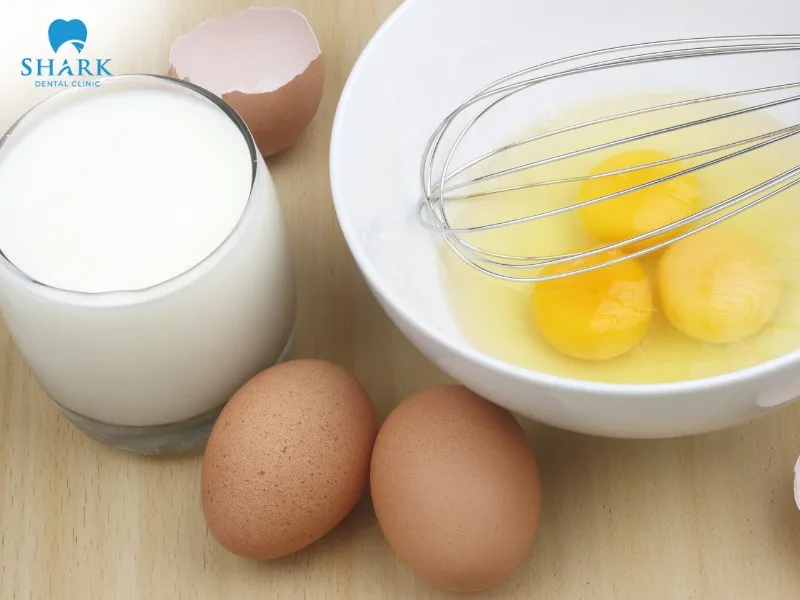
After 3–4 months of implant placement
Around 3–4 months after dental implant surgery, the post has almost fully integrated with the jawbone. At this stage, you can be more flexible with your diet, but you should still avoid applying strong pressure on the implant site. Aim to include a variety of food groups in your meals, such as green vegetables, chia seeds, fish, and walnuts, to enhance your overall health.

Oral hygiene after dental implants
In addition to maintaining a proper diet, developing and maintaining a consistent oral hygiene routine is crucial after receiving dental implants. Here are some recommended practices:
Brush your teeth properly
Brushing your teeth should be a daily habit, but not everyone knows how to do it correctly. Brush gently across all three surfaces of your teeth—the chewing surface, outer surface, and inner surface—using a soft-bristled toothbrush.
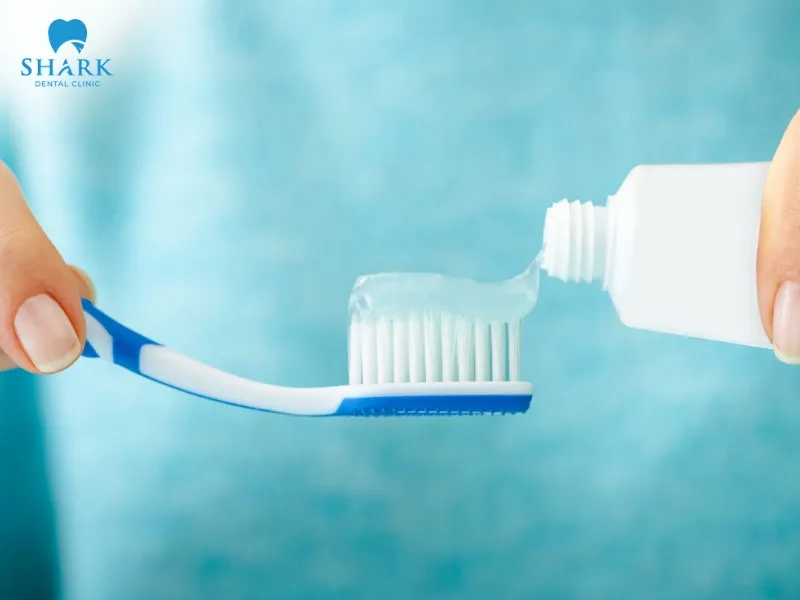
Use an interdental brush
For patients with dental implants or cosmetic restorations, using an interdental brush is highly recommended. This small and slender brush can reach between teeth and access deep areas in the mouth that a regular toothbrush cannot, improving overall cleaning effectiveness.
Use a water flosser
Unlike traditional wooden toothpicks, a water flosser uses a steady stream of water at high pressure to thoroughly remove food particles and bacteria from the mouth. This device is ideal for daily oral hygiene for those with dental implants.
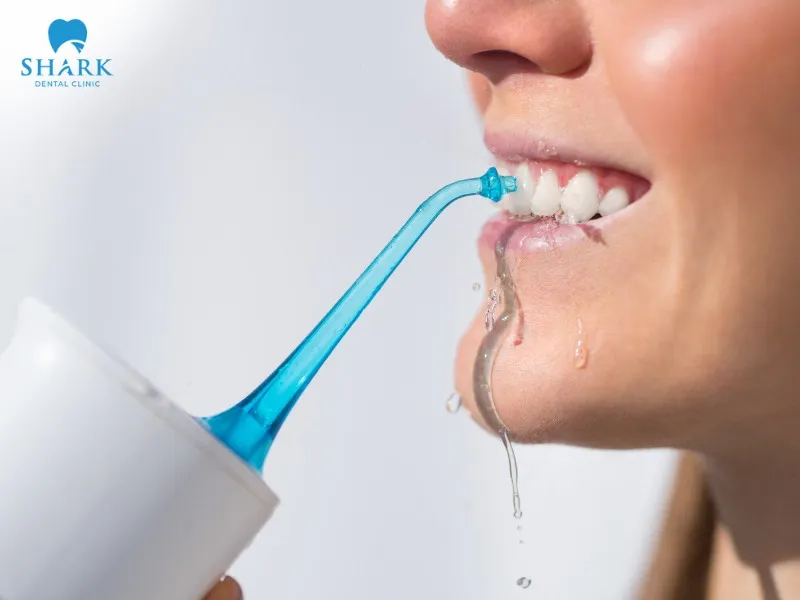
Use specialized dental floss
Use dental floss after every meal to eliminate any leftover food particles between teeth and along the gum line. When flossing, avoid moving the floss up and down; instead, gently move it back and forth to prevent irritation or damage to the gum tissue around the implant.
Rinse your mouth
A proper oral hygiene routine is incomplete without rinsing your mouth. You can use either antiseptic mouthwash or a saline solution to cleanse your mouth. This helps to remove bacteria, freshen your breath, and keep your mouth clean and comfortable.

In addition to the above practices, schedule regular dental check-ups after your implant procedure. These visits allow your dentist to monitor the integration of the implant post and provide timely advice if any issues arise.
This article provides comprehensive information about how long after dental implants can I eat normally and how to care for your oral health after dental implants. Be sure to keep these important tips on diet and oral hygiene in mind to maintain strong, healthy, and beautiful teeth.
>>> See more: Dental implant in Vietnam


